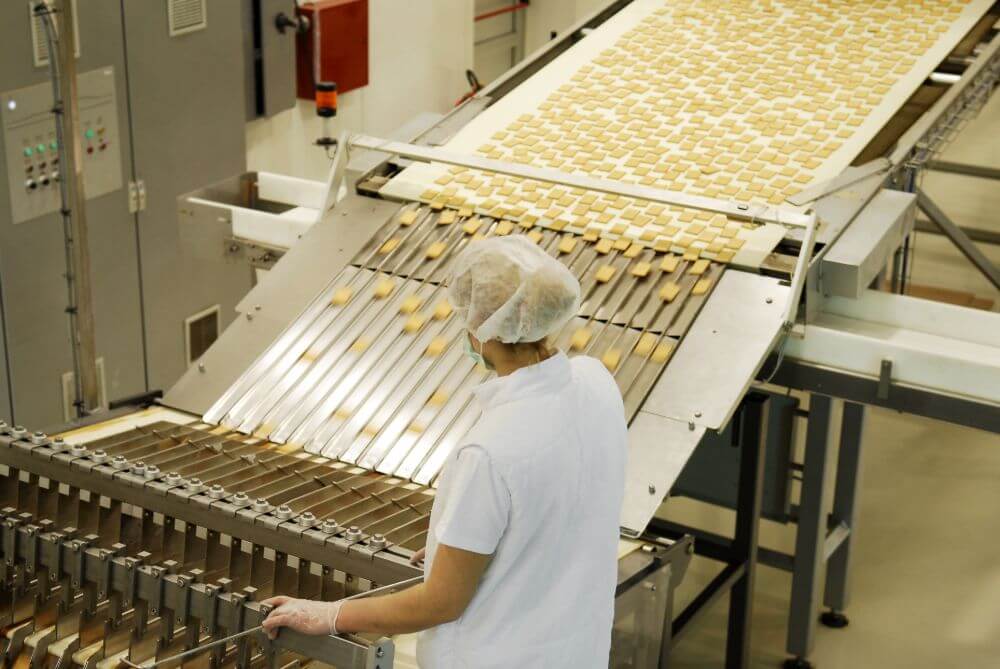As a food distributor, your business straddles the line between the wholesale distribution and the F&B industries.
This comes with a set of business challenges that are similar to those faced by businesses in both industries, but are distinct from them at the same time.
Therefore, if you’re looking for a software solution that can help you optimise your operations, you need one which can provide the necessary features and functionalities to address your business’s industry challenges.
An ERP software could provide the solution your food distribution business needs, provided it comes with or can integrate third-party solutions to provide the features and functionalities that are critical to the smooth functioning of your industry-specific processes.
Let’s look at the key features that an ERP software must have, to be suitable for the needs of your food distribution business.
1. Inventory Management With Real-time Insights

Like your typical wholesale distributor, your food distribution business needs to ensure that it carries enough stock of the food products they carry to meet customer demand, to avoid possible stock-outs and missed opportunities for selling to your customers.
On the other hand, you must also make sure that your business is not holding onto too much stock of a food product, as it takes up storage space in your warehouse and incurs an opportunity cost in terms of alternative products that could be more profitable.
To strike this balance between insufficient stocks and overstocks of your food products, you need a software solution that can optimise your inventory management.
And an ERP software with a robust inventory management module, like SAP Business One, could provide the tools you need to achieve this.
With an ERP software like Business One, you’d be able to track the stock levels and movements of your inventory in real-time, and use tools such as built-in stock controls to alert you to impending stock-out situations, giving you time to correct the issue by making another order from your suppliers.
The ERP software will also collect relevant sales data, which you can use to generate imports that gives you insight into the future demand for your food products.
These Are The Merits Of SAP Business One As An Integrated IT System For F&B Businesses.
This helps you forecast future demand, manage your supply chain to ensure you have sufficient quantities of raw materials, and ensure that your food distribution business always has sufficient stock to meet customer demand without holding too much unsold inventory.
2. Expiry Date Management Functionality

One thing that sets food distributors like your business apart from other wholesale distributors, is that your inventory usually consists of perishable goods.
Because of this, you need to ensure that your business is supply food products that are safe to eat. This means you’ll have to keep track of the ‘use by’, ‘sell by’, and ‘best before’ dates on your products.
To keep track of these dates, you’ll need an ERP software that allows you to define the above information in its records, as well as information about the shelf life of your products.
With this information on hand, your business will be able to ensure that your perishable food products reach retailers and consumers well before the dates indicated on the packaging.
Even for food products with imminent expiry dates, having access to this data in the records of your ERP software means you can sell them on clearance or donate them, to remove them from your inventory that much sooner.
3. Flexibility With UOMs, And Catch Weight Functionality

Another difference which distinguishes food distributors like your business from other wholesale distributors is that they often have to handle food products are purchased and sold using different units of measure (UOMs).
In addition, your business may need the right tools to track the “catch weight” (a food industry term for approximate weights) of your food products.
This however may be more applicable to food distributors with deal with fresh meat, poultry or fish, than it does with those that handle canned, frozen or dry packaged goods (where weight and size of food products are usually standardised).
Nevertheless, your food distribution business will probably need an ERP software which is flexible enough to support multiple UOMS, such as weight, volume, dimension and catch weight, and catch weight.
4. Batch Recipe Management

Food distributors like your business have an obligation to comply with the health and safety regulations of the country its operating in. In Singapore, these are covered under the Sale of Food Act.
To ensure your food distribution business is able to comply with these regulations, you need to be able to track every bit of data related to the batch recipes of your food products.
This includes the following data points:
- Descriptions
- Properties
- Quantities
- Costs
- Production notes
- History
In addition, the management of your batch recipes should also include alerts and notifications concerning the presence of possible allergens in them. All of these data will need to be stored and remain accessible for reference, possibly for several years into the future.
An ERP software that can be customised to provide your food distribution business with a batch recipe database would be what you need for this purpose.
Not only are they an ideal platform for centralising important information such as your batch recipes, they can also be customised to provide automated alerts that will make you aware of the presence of allergens in your batch recipes as well.
With these details on hand, it would be much easier for your food distribution business to generate the labels that will keep it in regulatory compliance with the Sale of Food Act.
5. Lot And Batch Tracking
![]()
Because of the nature of your products, food distributors like your business have to be able to meet complex and strict food traceability standards.
Under the Sale of Food Act in Singapore, your food distribution business must be able to recall food products upon direction from the Singapore Food Agency (SFA).
This means that in the event of a recall issued to your business, it must be able to track and trace individual batches of the affected food product through the manufacturing process and the distribution chain.
Because of this, you need an ERP software that provides lot or batch tracking capabilities which enables your business to track and trace your products by lot, batch or consignment numbers.
This makes it possible for your business to determine when and to whom the affected products in question have been sold, and thus issue a successful recall for said products quickly and efficiently.
Choose The Right ERP Software For Your Food Distribution Business

When choosing an ERP software for your food distribution business, you should take care to select one that can provide the key features and functionalities that can resolve your industry-specific needs.
It should be capable of handling business needs which are similar to those of wholesale distributors, such as inventory management and lot tracking.
But because your business handles food products which are perishable, it also needs the ERP software of choice to offer functionalities that help your business manage F&B-related needs, such as expiry date management, flexibility of UOM usage, catch weight functionality, and batch recipe management.
With this in mind, where should you begin your search for the right ERP software for your food distribution business?
In this case, we’ll like to recommend that you start by taking a look at SAP Business One. To find out how the ERP software from the leading ERP vendor in the world can help you tackle the unique challenges of the food distribution industry, click the image below to download our resource.




